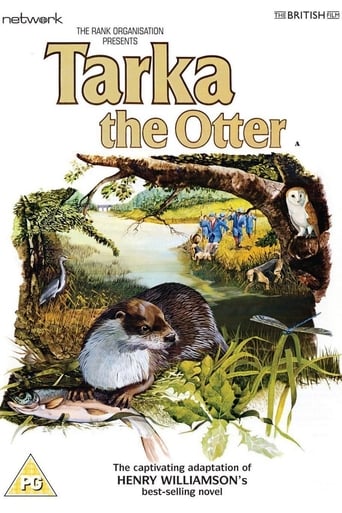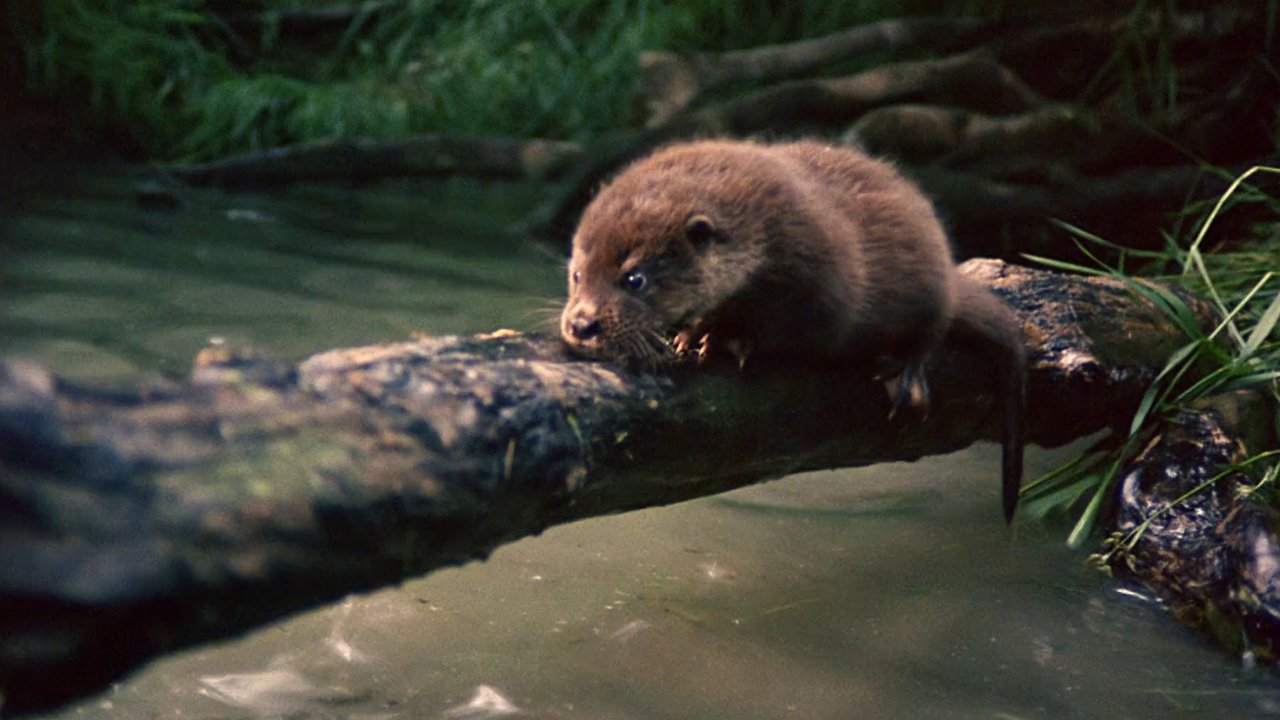Red-Barracuda
This British animal film details the life of an otter called Tarka and his daily obstacles to survive. His main dangers come from human beings perhaps unsurprisingly, in the form of poachers and, mostly, huntsmen and their pack of hounds.The influence of the previous year's Watership Down (1978) seems quite pronounced here, with its story focusing on the trials of animals from the British countryside and the grim reality of the horrors they encounter. Both movies share a peculiar unsentimental approach to their material, and both are hard hitting for family movies. The biggest single difference of course is that Tarka is based squarely on reality, with no talking animals or animation. As such, it utilises a lot of nature style photography, which are edited together into a narrative, the result is something of a hybrid of fiction and documentary. The nice narration from Peter Ustinov helps expand upon the story elements but this is a film which almost exclusively gets by without dialogue. The English countryside provides a lovely backdrop and is very well photographed here. There is an unmistakeable anti-hunting message, which remains absolutely pertinent to this day. The idea that grown adults get their kicks out of terrorizing a little wild animal minding its business in the countryside, is perplexing indeed. But even without the message, this remains a great little movie, with the real star being the gorgeous little otter itself. This is definitely a film which remains compelling and is one which should continue to be passed down to future generations of children.
tree1957
I taped this on DVD a few weeks ago and finally got around to watching it. The photography alone is stunning, and the otters are so beautiful. A sad ending was referenced, and at first I didn't know, but was watching with my mom, and when Ustinov narrated three bubbles leaving the scene, she was convinced and convinced me that it was the three otters: Tarka, his mate, and their baby moving to a new location. My almost 4-year-old granddaughter was watching, too, and LOVED it. She handled the deaths just fine, including Tarka's mother bleeding after being shot. The movie shows some death, but much more life. I like the music, the story, the scenery, everything.Since writing this review, I have read other reviews about the movie, watched again alone, and watched it with the 3-year-old referenced above, as well as her 7-year-old sister. No doubt, Tarka died in the end, and the 7-year-old was very sympathetic with Tarka's difficulties throughout the movie. It didn't bother her when Tarka and the otters ate the eels or fish or went after chickens, her loyalty was with the otters and she kept saying she couldn't keep watching. Each time, though, she did keep watching and enjoyed the movie, and perhaps thankfully fell asleep before the last hunt. As the scenes went forward, the 3-year-old remembered the entire movie from scene to scene and was as enthralled the second time around as much as the first. But with the sensitive child, it offered what I perceive as an opportunity to see that nature is, among other things, cruel. Tarka encounters marvelous and varied experiences in his full, albeit difficult, life. This little otter stepped out of the normal path because of being alone. It enabled him to be a worthy opponent for the trained dogs and even to take out one of the enemy in the end. This movie represents a triumph over adversity. Tarka finally succumbed, but what a valiant little creature from a fierce breed. Butterflies can be fierce, hummingbirds are fierce, dolphins live passionately and fiercely. It seems to me that this is an aspect of nature to embrace and celebrate, maybe to emulate, not to run from and condemn. Because he was so resourceful and good at surviving, he was able to leave cubs behind. His difficulties weren't limited to being hunted by dogs.A final note about varying comments about anthropomorphism in the movie. My understanding of this fallacy is to attribute human qualities and feelings to non-human creatures and things. This movie does that in abundance, but I don't have a problem with it. I tend to take an anthropomorphic view oftentimes, anyway. Looking at Tarka's life from a perspective we can relate to helps us to relate to the life experiences of the otters. So I say, yes, anthropomorphism runs rampant in the move, and that this is okay. It takes the movie out of the realm of being a cold, emotionless documentary, the narratives of which, btw, are frequently highly anthropomorphic in their presentation.
Zoe Kendell-Taylor
Many people think that "Tarka the Otter" isn't a suitable film for children because of its content, yet they would allow their children to watch the beauty of Watership Down or Disney films such as Bambi, The Lion King, Beauty and the Beast, the Jungle Book etc. They all have upsetting things that happen in them, but just because it's a cartoon, therefore less realistic, parents tend to think that it is suitable for children, as they won't get as upset compared to it being filmed as a non cartoon film. I have to disagree with this.Tarka the Otter is a beautiful film and very artistic, and while yes, it is a sad ending, the last words have stuck with me. The scenery shots are also as beautiful as the film and I was so surprised to find that I hated a dog so much, Boatman did very well, I love all animals and it is very hard for animals to make me dislike them.
pete-579
My name is Peter Talbot. I hand raised the otter 'Spade' guided by Philip and Jeanne Wayre. I worked and lived the story with all the animals on screen as the principal animal handler for the two years of production. The Book 'Tarka the Otter' is a modern classic and has much to do with The suffering of The First World War. Otters hiding from huntsmen underground is quite analogous with soldiers in the trenches. Henry Williamson (the author)was one of the world's greatest nature writers. He chose the locations with David Cobham and allowed the film to be made, having turned down Disney, only on the understanding that it would be, authentic, educational and not sentimentalized - there is very much more to the story than is immediately apparent.In the intervening years I have written and posted much about my time with Spade (Tarka) and all the animals in the film. The whole story is now an ebook called 'Ripple of Ancient Sunlight' and can be found on most on-line e-book retailers. If you wish to contact me please drop into the 'Tarka and me' Facebook. page or Twitter, Peter Talbot - Tarka_andme .


 AD
AD



